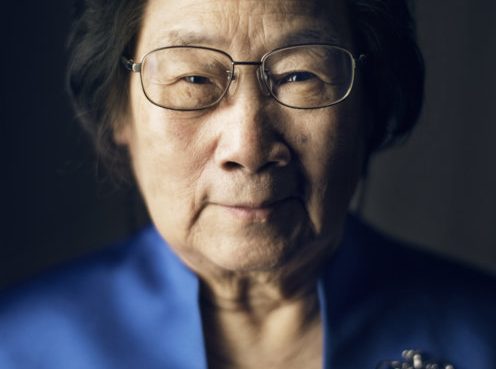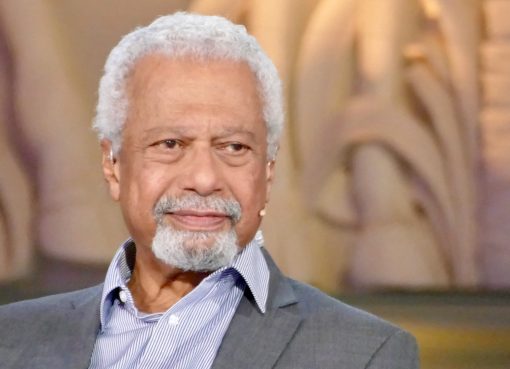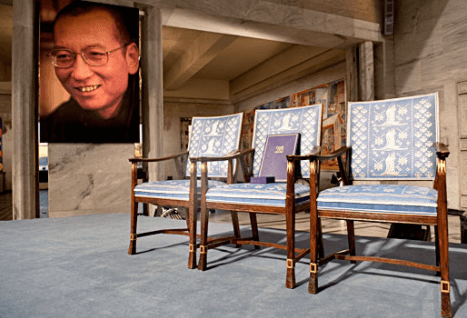The scientist of this issue’s spotlight is Dr. Katalin Kariko, who won the Nobel Prize in Physiology and Medicine in the year 2023. Dr. Kariko along with Dr. Drew Weissman invented the technology of mRNA vaccine and could successfully produce Covid-19 mRNA vaccine in record low time and thereby could save millions of lives throughout the world.
Katalin Kariko was born in the year 1955 in a small county named Szolnok in Hungary and grew up in a nearby small town called Kisujszallas. She was from a very humble family and grew up in a home without TV, refrigerator and running water. Her father was a butcher in the local town. She was very good at her studies since childhood and was able to win a national prize in a biology competition in Hungary. By the time she graduated from high school, she developed more interest in biology. Later, she completed B.Sc. in biology in 1978 and pursued Ph.D. in Biochemistry to complete it in the year 1982. Meanwhile, she got married and was blessed with a daughter in November 1982. After Ph.D., she joined a post-doctoral position in the Institute of Biochemistry, Biological Research Centre (BRC) in Hungary. Her career in BRC met with a setback as Hungarian Govt. stopped funding BRC. This forced Katalin to look for other opportunities.
She started looking for suitable positions abroad and could get another post-doctoral position in the laboratory of Prof. Robert J. Suhadolnik in Temple University of Philadelphia. Katalin Kariko left Hungary along with her family in the year 1985 to become a member of Suhadolnik lab. In Suhadolnik lab, Kariko joined a group working on the clinical trial for treating AIDS and some blood disorders with dsRNA. While working in Suhadolnik lab, Kariko got an offer from John Hopkins University in 1988. She was excited with the new offer and decided to join John Hopkins, but her employer Dr. Suhadolnik strongly disapproved her idea to leave his lab at that time. When she didn’t agree to his suggestions, Dr. Suhadolnik wrote to the immigration office of the country declaring that Katalin Kariko and her family were illegal immigrants in the United States. She was forced into a litigation, which she won subsequently but lost the new job, as the John Hopkins University decided to retract the offer due to pending investigations on her. This was another major setback in her career; she resigned from the job in hand and lost the one she wanted to join. During this time, Dr. Kariko also had difficulty finding a new job as her earlier employer Dr. Suhadolnik was still badmouthing her. Finally, in late 1988, she could find a position in Uniformed Services University of the Health Sciences in Bethesda, Maryland and worked there for a year.
In 1989, she joined University of Pennsylvania and started working in the area of application of mRNA for treating heart diseases. Dr. Kariko was promoted to the position of Adjunct Professor in 1989. She continued working in mRNA-based gene therapy in University of Pennsylvania and tried to attract external funding to her lab. Despite her efforts, multiple grant applications got rejected and the University of Pennsylvania demoted her from the track to become a full professor. This was the time when the potential of mRNA-based therapy was doubted by many and researchers working in the area had hard time continuing their research due to lack of funding support. Dr. Kariko persevered through this difficult time and chose to stick to her field of research.
Meanwhile, Dr. Kariko’s research on mRNA-based therapeutics got a new collaborator as Dr. Drew Weissman an American immunologist, who joined the University of Pennsylvania in 1997. Drs. Kariko and Weissman continued their work on the same area and could solve many problems in the field. In the year 2005, they co-founded a company, RNARx and could obtain a few valuable patents. Subsequently, Dr. Kariko became the Vice-resident of another company called BioNTech, which in collaboration with AstraZenica and later with Moderna, produced mRNA vaccine for Covid-19. For this groundbreaking invention that directly saved millions of lives globally, Dr. Kariko and Dr. Weissman have been awarded with the Nobel Prize in Physiology and Medicine in the year 2023. She is still actively associated with research in the field of mRNA-based therapeutics. Besides being a member of many professional bodies, Dr. Kariko also has recently accepted a position of professor in her alma-mater, the University of Szeged in Hungary. Dr. Kariko is a living legend, and the story of her life will continue to inspire many in the future.




